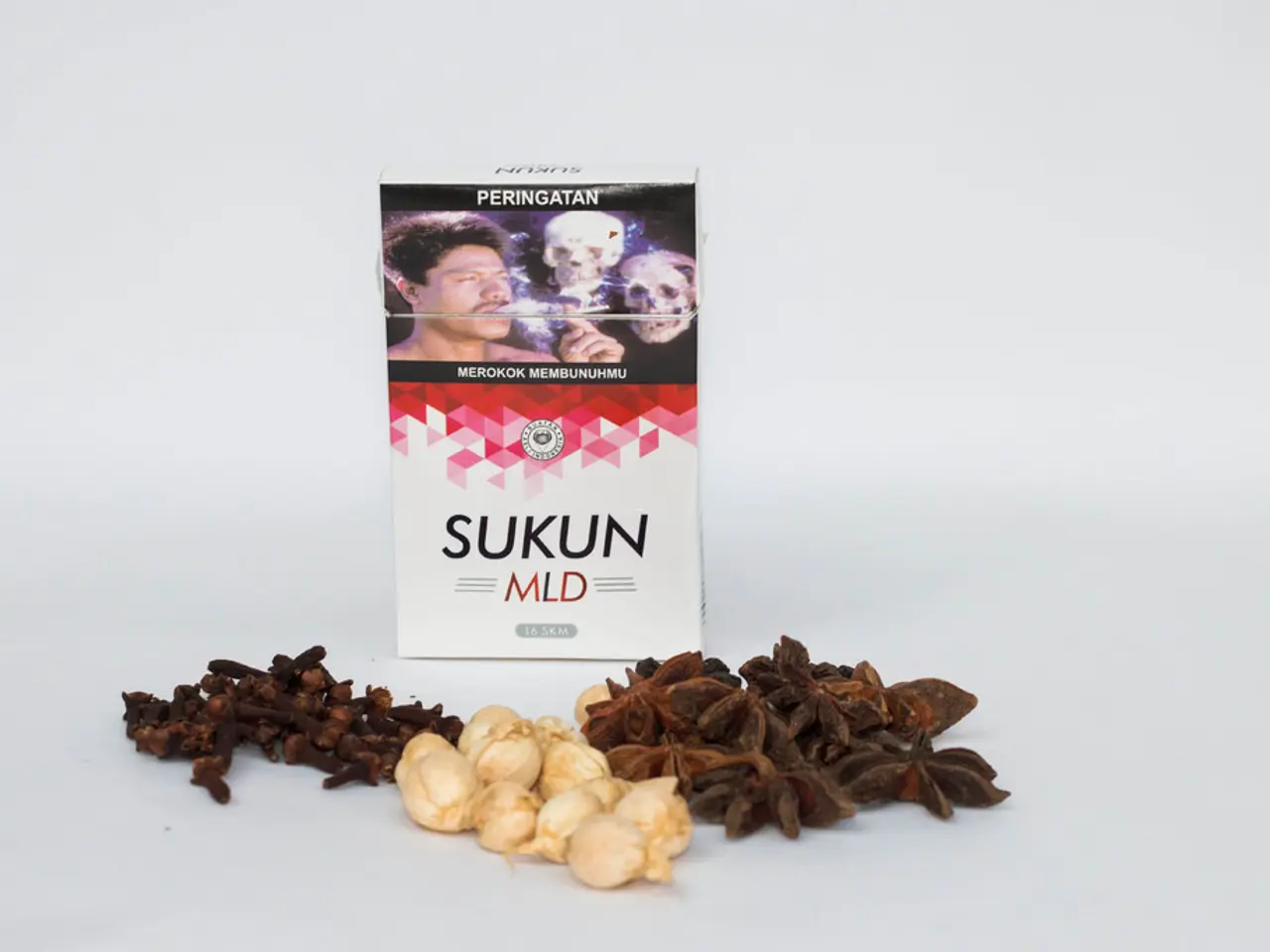Does Oregano Oil Alleviate Cold Symptoms?
The world of natural remedies is constantly evolving, and one substance that has been gaining attention is oregano essential oil. Derived from the leaves, stems, or flowers of the oregano plant, this oil has been used for centuries for its various health benefits. However, when it comes to treating the common cold, the evidence is still inconclusive.
Recent research suggests that oregano oil contains compounds like carvacrol, which have shown antiviral effects against certain viruses such as herpes simplex virus type-1 (HSV-1), rotavirus, and respiratory syncytial virus (RSV) in lab or animal studies. However, it was found not effective against the flu virus specifically.
In addition to its antiviral properties, oregano oil may also have anti-inflammatory effects. Studies have shown that its compounds may reduce inflammation by inhibiting inflammatory molecules, potentially easing symptoms related to respiratory inflammation.
However, it's important to note that most of these findings come from laboratory or animal research. There is no strong human clinical evidence so far to confirm oregano essential oil as an effective treatment for the common cold or other respiratory viral infections.
Moreover, due to its strong concentration, oregano essential oil is not safe to consume. It should be used in aromatherapy or applied topically with a carrier oil. On the other hand, oil of oregano, which is less concentrated, can be consumed by adding 2 to 3 drops to water or juice.
While oregano essential oil shows promising antiviral and anti-inflammatory properties in preclinical studies, current scientific research does not support it as a proven treatment for the common cold in humans. More rigorous clinical trials are needed to determine its safety and efficacy for this use.
It's also worth mentioning that oregano may increase the risk of bleeding and should be stopped prior to surgery. Additionally, people who take warfarin, heparin, or other anticoagulants should avoid taking oregano oil due to its potential interaction with these medications.
In conclusion, while oregano essential oil is a promising substance with potential antiviral and anti-inflammatory properties, it is not yet a proven treatment for the common cold. It's always advisable to consult healthcare professionals before considering oregano oil supplements. Meanwhile, other essential oils like peppermint and eucalyptus are particularly useful for easing congestion.
- Oregano essential oil, derived from the oregano plant, has been used for centuries to address various health concerns.
- Recent research indicates that oregano oil may possess antiviral properties against certain viruses like herpes simplex virus type-1 (HSV-1), rotavirus, and respiratory syncytial virus (RSV).
- Despite this, it has shown no effectiveness against the flu virus specifically.
- Its antiviral properties may extend to reducing inflammation, potentially alleviating symptoms related to respiratory conditions.
- However, most of these findings are based on laboratory or animal research, with little human clinical evidence to support oregano oil as an effective treatment for the common cold or other respiratory infections.
- Due to its high concentration, oregano essential oil is not safe for internal consumption; it's intended for use in aromatherapy or topical application with a carrier oil.
- Oil of oregano, which is less concentrated, can be consumed by adding a few drops to water or juice.
- As oregano oil shows promise in preclinical studies, further clinical trials are required to confirm its safety and efficacy for the common cold and other respiratory viral infections.
- It's also crucial to note that oregano oil may increase the risk of bleeding and should be discontinued before surgery.
- Individuals taking warfarin, heparin, or other anticoagulants should avoid using oregano oil due to potential medication interactions.
- As oregano essential oil remains unproven for the common cold, it's advised to consult medical professionals before considering supplementation.
- In the meantime, essential oils like peppermint and eucalyptus are particularly helpful for alleviating congestion associated with colds and flu.
- Beyond respiratory health, mental health conditions such as depression, bipolar disorder, and anxiety may also benefit from various therapies and treatments.
- A balanced approach to health-and-wellness entails considerations for nutrition, fitness-and-exercise, and mental health, in addition to predictive science and the management of medical-conditions like obesity, ulcerative colitis, HIV, hepatitis, cancer, eczema, dermatitis, atopic conditions, breast cancer, asthma, and Crohn's disease.




